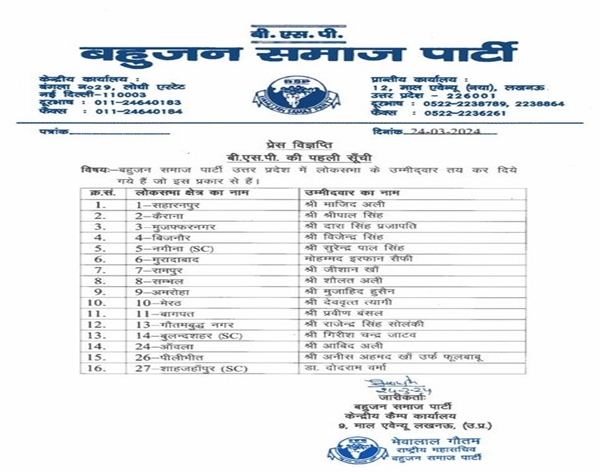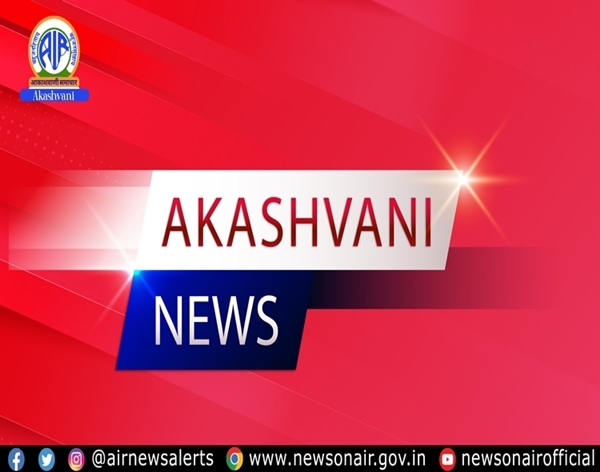This is All India Radio. In the program Spotlight, now we bring you an exclusive interview with Dr Ashok Lahiri, Former Chief Economic Advisor on Union Budget 2023-24. Interviewer is Shishir Sinha, Senior Journalist.
Shishir Sinha, Senior Journalist:
The government is getting ready to get the first Union Budget of Amritkaal, approved by the Parliament. So that it could ensure more productive use of funds meant for fiscal year 23-24 from the first day of the fiscal itself. Meanwhile, Finance Minister, Nirmala Sitaraman, along with team of Finance Ministry Secretaries and Chief Economic Advisor, touring various parts of the country to explain the fine prints of the budget to the people. Now will this budget be foundation stare for AmritKaal growth roadmap? To get the answer to this and many more questions, I am joined by member of the 15th Finance Commission and Former Chief Economic Advisor, Dr Ashok Lahiri. Dr Lahiri, my first question to you. How this budget is good for the present and will be better for the future?
Dr Ashok Lahiri, Former Chief Economic Advisor:
I think, there should be consensus that this budget does a fairly good job of reconciling the twin requirements of ensuring macroeconomic stability in an uncertain world. At the same time, also encouraging growth or stimulating growth. It's a tall order. I mean you can air on both sides. But I think it does a fairly good job. What it does, it increases your capital expenditure and at the same time what it does, is, to reduce the fiscal deficit or put the fiscal deficit on a sliding path. I mean, if you do much of that fiscal consolidation, you may hurt growth. At the same time, if you do too much stimulation then you can upset macroeconomic stability and end up with high inflation and even balance of payments problems. So this budget is a good combination.
Shishir Sinha, Senior Journalist:
One important allocation is provision of rupees 10 lakh crore for capital expenditure and if I add provisions made for creation of capital asset through grand I aid to states, the effective capital expenditure of the center is around rupees 13.7 lakh crore, which is 4.5 percent of GDP. What kind of multiplier effect this allocation can have?
Dr Ashok Lahiri, Former Chief Economic Advisor:
Difficulties for this multiplier exactly is, but, I will go with the number like three, maybe and how much extra income will it generate. Sometimes we are too focused on the short term. But given the fact that this is the Amrit Kaal or the Prime Minister said that the Amrit Kaal is for the next 25 years and we have to become a developed country in the next 25 years. As you know 2022 marked the 75th year of Indian independence and 25 years will take us to the 100th year. Now, if you are having a plan as long as 100 years, then you have to lay the foundation of many things and the dividend from such investments doesn't come in only in one year. But it will come slowly and surely through many years. And here, the most important thing is, that apart from education and health, physical infrastructure is the most important necessity for high growth. And there you can include railways, you can do roadways, you can include waterways and ports airports and urban development. And I think this government, on this budget, puts enough emphasis on these aspects.
Shishir Sinha, Senior Journalist:
One big concern is that despite higher capital expenditure or we always say that is a kind of hand-holding impact, but we are not seeing the private investment picking up. Where is the problem and what kind of solutions government can provide?
Dr Ashok Lahiri, Former Chief Economic Advisor:
See, businessmen and moneyed people do not like uncertainty. So Sishir, you will accept that the world is bedeviled by three sets of uncertainties. First is this Russia-Ukraine war. Second is related to it, is the energy Market uncertainty. As you know Russia is a huge producer of petroleum. And given the fact that there is some kind of embargo on Russian hydrocarbon, the future of petroleum price is uncertain to say the least. And India being a major importer of petroleum, as well as fertilizer, which is a derivative of petroleum, we suffer from that uncertainty. And third is, given, the fact that petroleum prices, because they were elevated and Ukraine was affected. Ukraine is a major exporter of wheat. International Commodity markets were also elevated. So inflation was high. Countries do not like inflation, particularly developed countries. So developed countries that inflation, which is much higher than their tolerance level of two percent, so, when they have high inflation they put down the brakes. And when they put down the brakes, it means rate of interest goes up. Just as you shift your money from a bank to another bank when the bank that you have the money in is paying a lower rate of interest. Similarly, the rate of interest go up elsewhere, then money tends to move out from here.
So, this is the uncertain situation in which the private sector is being diffident. But at the same time, it is true that what will happen is that, as soon as growth picks up and demand conditions improve and the businessmen realize that India is sort of not insulated from world development, yet, our proportion of GDP that we export or import is much lower than what it is in China and East Asia. So, these uncertainties will affect us less. Nevertheless, businessmen, I think, suffer from this uncertainty. That's the first reason. See, it's already the chicken and egg problem. Businessmen don't invest because capacity utilization is not high enough, there is extra capacity, demand has to go up, when demand goes up, capacity utilization goes up and businessmen start investing and businessmen start investing so demand goes up again and so on and so forth. But here, the issue is nothing succeeds like success. So, once you trigger the growth, this whole virtual cycle starts rolling.
Shishir Sinha, Senior Journalist:
Do you think that something more is required at this moment to attract long-term capital ?
Because there is also an issue that more and more investment are coming towards the maintenance one and not the Greenfield one. How do you see this kind of explanation?
Dr Ashok Lahiri, Former Chief Economic Advisor:
It is right in a way, but then money is made from long-term vision. Money is not for people with extremely short-term horizon. I mean, there will be speculators and people who are trying to make a quick kill. If you want to make big time money, you have to get into a market and stay there and see the long-term growth and I believe that manner internal optimist for the Indian economy. And I think some businessmen are taking a very myopic view. However, having said that, if you look at the stock market, in spite of all the uncertainties, the Indian stock market has done reasonably well compared to the other world markets.
Shishir Sinha, Senior Journalist:
Now coming to the global uncertainty, do you think that the budget has factored in global uncertainty, which may necessitate additional expenditure, what we saw during this current fiscal year at any given point of time during the next fiscal year?
Dr Ashok Lahiri, Former Chief Economic Advisor:
You see, when the fiscal deficit overshot in 2021, the reason was Covid 19. I mean, people had to be vaccinated. And there were also the problem of lockdowns and people were migrating from one place to another.The issue is, what will the central government be more worried about? Is it inflation? Or, is it the growth faulted? One thing that you must keep in mind is that our exports and imports is a proportional GDP is not anywhere as high as in China and East Asia. So, since we did not have participate in the party when the opening up was taking place, we shouldn't also be suffering from the hangover from last night. So the relative isolation of the Indian economy from the world economy, also results in the insulation of what happens in India. We savvy what happens abroad. And I think the uncertainty is there but I don't know which uncertainty is more pronounced. Whether commodity price shock or demand faultary. Perhaps the balance is towards demand faultary.
Shishir Sinha, Senior Journalist:
Now coming to the fiscal deficit number, the current fiscal, the government has said that they are going to meet 6.4 percent as projected in Budget and for the next year it is 5.9 percent. Do you see this is a realistic fiscal deficit number?
Dr Ashok Lahiri, Former Chief Economic Advisor:
If you look at the government's performance over three years, Fiscal Marksmanship has not been too bad. And the only exception was 2021, the height of Covid pandemic. And I think that the heights of Covid pandemics, the government should have busted the estimate, as it did. And any reasonable government would have spent more than what they actually had budgeted. So I wouldn't be that concerned about the fact that they have been very conservative in their projection of physical deficit. And I will wait for the actual numbers to come in to see what actually does happen.
Shishir Sinha, Senior Journalist:
My next question is about the new income tax regime. And the apprehension is that because of the more emphasis on new income tax regime which prescribes lower tax by sacrificing exemption. There is a fear that it may discourage household saving. Is this apprehension justified?
Dr Ashok Lahiri, Former Chief Economic Advisor:
You know, the beauty of this system is, the choice remains between the old regime and the new regime. If you think that you are saving simply because this tax exemption was there, that continues to be there under the old regime. You can go ahead and choose the old regime and keep doing what you're doing. On the other hand, if you think you want to avoid the compliance cost and not fill up so many forms and not look at all those complications, you can go for the new regime. So whatever is good for an individual or a non-corporate, in a way, non-corporates will at best of both the worlds. If they find that the old regime is better than the new regime, they can continue. On the other hand, if they find that the new regime is better, they can choose the new regime. So I don't really understand why complications in new regime should be affecting savings.
Shishir Sinha, Senior Journalist:
My final question to you that, now, what more can be done to achieve higher growth trajectory because prime minister Narendra Modi has already announced that by 2047, the aim is to become a developed Nation. So, how to do that and what more to be done in this regard?
Dr Ashok Lahiri, Former Chief Economic Advisor:
See, I think, the history of development shows us that there are three fundamental pillars of growth and development. That's Education, Health and Infrastructure. And together with that, what is important, is, the Technological Leap Forward. Our advantage is that we are starting now, when we do not need to reinvent the wheel in 20th century. You didn't have to go from steam engine to diesel engine then an electrical engines and so on. You could go directly from steam engine to electrical engine. So we can get the best of the science and technology from abroad and implement it. And here, what will be essential, is to lay stress on education. Because one number that you find, is that there is no country in the world where the people are educated and poor. And there is no country in the world where the people are uneducated and rich. So, since literacy is improving in India, I think, the autopilot has started. I wish we had done more for education earlier. Similarly health. If you are suffering from low level morbidity, no matter how bright you may be, you can't do well. And look at what we have done in terms of longevity, life expectation because that's a catch-all measure of health.
Health is also improved. There is a lot to be done but we need to make progress on education and health and together with that we need to have serious improvements in infrastructure. Because infrastructural means affect mobility. Infrastructure effects the location of industries. So we need to have much better economics of location and the urban infrastructure have to improve. So I think we need to do that and Sishir, I think we must be very careful about another problem, that the solution is not in throwing money at a problem. Implementation is the key. And I think one of the things of the present government and our Prime Minister, Mr Narendra Modi is that what we know of his stint as Gujarat Chief Minister, is that, he takes a great interest in implementation. An implementation is what will lead from input of money to output of rail lines and schools and hospitals, to outcomes where we have better education and better health.
Shishir Sinha, Senior Journalist:
Dr Ashok Lahiri, thank you very much for talking to All India Radio.
Dr Ashok Lahiri, Former Chief Economic Advisor:
Thank you.
This program was produced and presented by the New Services Division of All India Radio. You can listen to it on our mobile app News on AIR. This program is also available on our YouTube channel News on AIR Official. You may email your opinion about this program at airnsdtalks@gmail.com
——-














